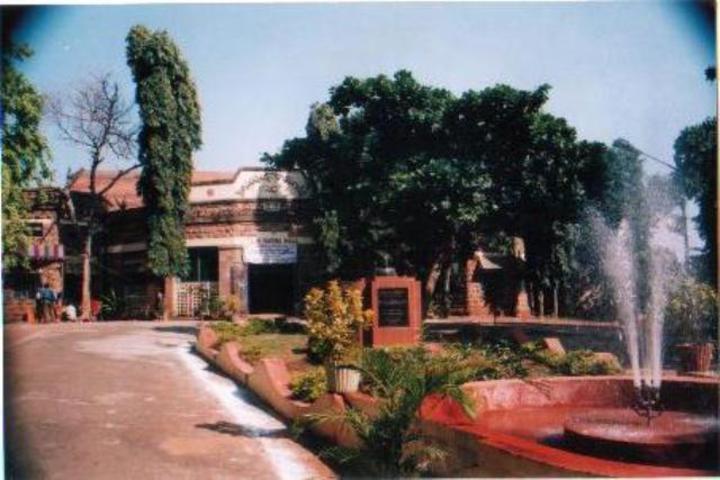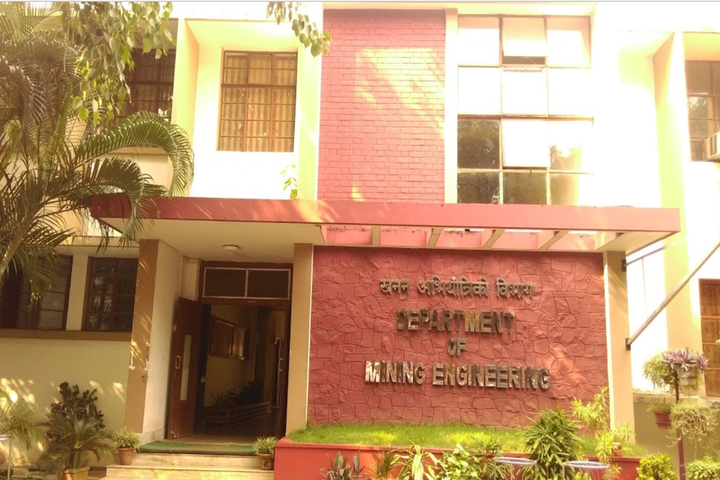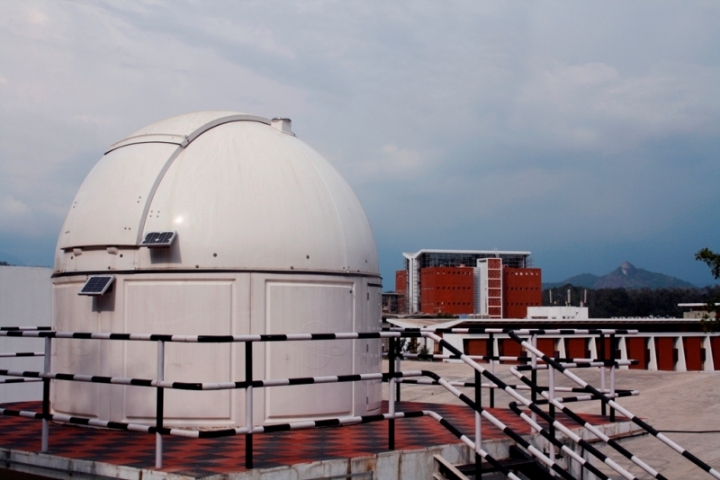
RF and Microwave Engineering Course Details - Fees, Subjects, Syllabus, Duration, Eligibility, Career Scope
Degrees offered: M.E /M.Tech., B.E /B.Tech, B.Tech M.Tech, Diploma, M.S
What is RF and Microwave Engineering
RF and Microwave Engineering is a part of the subcategory of Electrical Engineering. The specialists in RF and Microwave Engineering design, construct and operate the devices that transmit or receive radio waves. The objects in this field include radios, mobile phones, wireless equipment, and some other objects.
RF and Microwave Engineering is the sub-branch of engineering that includes almost everything from transmitting or receiving a radio wave and is not limited to mobile phones, radios, Wi-fi, and other devices that come under radiofrequency. The course is suitable for those who have a keen interest and the desire to grow and develop in the field of RF and Microwave Engineering.
RF and Microwave Engineering offers the individual to select any of the job profiles where he/she wishes to work. The different job roles in this field are Electrical Engineer, Radio Frequency/Microwave Engineer, Radio Frequency Engineer, VSAT Engineer and other job profiles where they can apply for a job.
The top companies in this field include Nokia, Microsoft, Qualcomm, Mercury Systems, Indian Railways, and other companies that help the candidate’s expertise in the field. Therefore, pursuing RF and Microwave Engineering helps you to grow and develop expertise in the field.
Eligibility Criteria (UG & PG) of RF and Microwave Engineering
While most of the colleges provide admission based on the marks that they have scored in their earlier exams, there are some of the eligibility criteria for which the candidate has to fit in to be eligible for RF and Microwave Engineering course .
For Undergraduates:
The candidate should have completed their 12th in the Science stream with Physics, Chemistry and Mathematics as the compulsory subjects.
The students should have scored a minimum aggregate of 50% marks or equivalent from a recognized board or university.
For Postgraduates:
If the students want to pursue this course for their post graduation, then the student should have a bachelor’s degree as B.E. or B.Tech in the field with average 60% marks.
The student should qualify the GATE exam so that he/she gets qualified for the admission to the course as most of the colleges accept the GATE scores.
Entrance Exams for RF and Microwave Engineering
To get an admission into the RF and Microwave Engineering course usually does not require the candidate to appear for an entrance examination. To receive admission into the postgraduate course, the candidate has to appear for the:
GATE- The marks scored in the GATE exam are accepted by the colleges that offer a postgraduate engineering course in RF and Microwave Engineering.
College Predictors VIEW ALL
Scope of RF and Microwave Engineering in India and Abroad
RF and Microwave Engineering is a sub-branch of electrical engineering that deals with wireless technology and their uses in the work.
RF and Microwave Engineering come under a branch that has many job opportunities in the future. The Radio Frequency Engineers have a better and bright future in the telecom sector, providing them with different career opportunities to grow and expertise in the field.
The work that is included in RF and Microwave Engineering is sometimes challenging as you have to put a lot of effort and work hard to grow more and more and get experience. The engineers have scope for their career not only in India but also in Abroad depending on their education.
They get jobs in the private sector or government sector depending on their knowledge. Therefore, the scope of the course in RF and Microwave Engineering keeps rising every day and offers good career opportunities to the students for their future. The engineers are paid well once they get a particular job profile according to their preference.
Course Fees RF and Microwave Engineering
| Minimum Fees | Maximum Fees | |||
|---|---|---|---|---|
| Private | Government | Private | Government | |
| UG | ||||
| PG | ||||
Course Subjects
The RF and Microwave Engineering course subjects include Mathematics, Physics, and other subjects which are necessary for the students to understand the course deeply and impart the knowledge in the field. The subjects are different and need the candidate to understand them so that they get better with the course. The course subjects are:
Advanced Engineering Mathematics
Antenna Design Lab
RF IC and Microwave Mems
Satellite Communication
Remote Sensing
Microwave Circuits and Systems
Careers in RF and Microwave Engineering
The main objective of any course is to make sure that the students are educated with all the required aspects that come under the course. They also explain to the students about the various careers in the course so that the students get a fair understanding of the careers in the course.
Some colleges provide campus placement while some of the colleges do not provide campus placement as it differs from one institution to another. The careers in RF and Microwave Engineering make sure that the candidates get to know about the opportunities that are available in the course.
There are various careers in RF and Microwave Engineering that are available in the course. Hence, many career opportunities are available in the course so that the individual gets to explore in the field. Some of the careers in the course include:
Electrical Engineer
Radio Frequency Engineer
Applications Engineer
Associate Engineer
Radio Frequency Hardware Engineer
Upcoming trends
The trend in RF and Microwave Engineering is clear and is seen as rising even more as the technology innovation is increasing at a faster rate. With the innovation in the Internet of Things, there will be greater demand for wireless connectivity and greater demand for the professionals working in the field.
The changes in the network and 5G network coming is one of the upcoming trends in recent times as smartphones are equipped with 5G technology. With the innovation of the 5G network, the consumer expectations will be high, and the professionals need to make sure that they meet the consumer expectations. The demand for network and the technologies will eventually increase, giving more scope to RF and Microwave Engineering. The upcoming trends are listed below:
Advances in Electronic Warfare Technology
Research and Development to be the top priority
The Autonomous Car
The reinvention of Radio Frequency and Antennas
Advancement in the Microwave Technologies
Job Profiles and Top Recruiters
Job Profiles Offered to RF and Microwave Engineering Professionals
As this is a sub-branch of electrical engineering, the job profiles are the same as that of electrical engineering.
Job Profile | Job Description |
The job of the Electrical Engineer is evaluating the systems and the products. They conduct research programs by designing and conducting the various programs. | |
RF/Microwave Engineer | The RF/Microwave Engineers are responsible for designing and then developing the components of the Radio Frequency and Microwave and assembling them from the concept till the final production. |
RF Frequency Engineer | The RF Frequency Engineer is the one who is specialized to transmit and receive the radio waves that are there in the devices. The work of the tech-centred societies is not possible without the RF Frequency Engineers. |
RF Design Engineer | The RF Design Engineers are the ones who are hired to design the radio frequency equipment and the products that are required by the organization. They are responsible for dealing with the project team throughout the complete process. |
Top Recruiters in RF and Microwave Engineering Sector
The recruiters in RF and Microwave Engineering field are mentioned as follows:
Intel
Nokia
Engineering Network International
COMSOL India
Indian Railways
Qualcomm
IBM
Mercury Systems
Average Salary
Once the candidates are placed with the organizations, the payscale is decided accordingly based on their daily performance, their prior experience and many other factors. They earn an average minimum salary depending on the various aspects. The salary of RF and Microwave Engineering professionals will differ according to the different job profiles.
Job Profile | Average Salary |
Electrical Engineer | Rs. 2 to 8 Lakhs p.a. (Approx.) |
Associate RF Engineer | Rs. 2 to 4 Lakhs p.a. (Approx.) |
RF Hardware Engineer | Rs. 2 to 6 Lakhs p.a. (Approx.) |
RF Engineer | Rs. 4 to 9 Lakhs p.a. (Approx.) |
Applications Engineer | Rs. 4 to 8 Lakhs p.a. (Approx.) |
Required Skillset for RF and Microwave Engineering
The skill sets that are required in the profession of RF and Microwave Engineering is mostly the same as it is a sub-branch of electrical engineering.
Experience in ECAD tools - Once you start working in the field, then you must have total experience in the ECAD tools. The knowledge and the use of the tools are very important for the work in the field.
Leadership and Management - They should be able to take responsibility and eventually lead a team, and it is important to successfully manage the team.
Communication - The communication skills are always two sides. Firstly, talking to the clients and explaining them the concept and second, involves conveying the information to the team members and giving them the instructions. They need to practice these skills to interact with the clients, colleagues, teammates, and the management of the organization.
Attention to Detail - The engineers must know everything from the business model to the concepts and the problem-solving phases to the testing phases. They need to ensure attention to detail to make sure that nothing is missed out in the process.
Critical Thinking and Problem Solving - Engineering is the field that needs to solve problems that are complex and needs thinking. They should be able to solve the problems with a cool and analytical mind. They must be able to think and solve the problems accurately.
Course Curriculum for RF and Microwave Engineering
In the study of RF and Microwave Engineering, the course curriculum model includes the recent developments and the technologies in the radio frequency. The main vision of the course curriculum is to impart the education that is included in RF and Microwave Engineering and mainly focusing on fundamentals, research, and the innovations in the field.
The course curriculum is designed to provide comprehensive education which in order helps and further prepares the students to contribute to the working of the organization. It encourages the students to be the future innovators who will meet the need with ethical practice. The RF and Microwave Engineering course curriculum aims at analyzing, evaluating, designing, and also solving the complex problems that come under the field while working in the organization. It is to acquire in-depth knowledge that is related to the course.
The curriculum helps the students to get complete knowledge about the different areas and the aspects of the course.
Popular RF and Microwave Engineering Entrance Exams in India
GATE
Exam Date: 07 Feb, 2026 - 08 Feb, 2026
JEE Advanced
Application Process: 06 Apr, 2026 - 02 May, 2026
CUET PG
Application Process: 14 Dec, 2025 - 14 Jan, 2026
TS PGECET
Exam Date: 28 May, 2026 - 31 May, 2026
Frequently Asked Questions (FAQs)
Question: What are the required skill sets for the professionals in this field?
Answer :
The engineers in this field need to possess certain skill sets so that they perform better in work. They need to possess certain skill sets for the professionals. Below mentioned are some of the required skill sets:
Communication Skills
Attention to Detail
Critical Thinking
Problem Solving
Leadership and Management Skills
Question: Is it necessary to appear for an entrance examination to get admission to the course?
Answer :
If you want to pursue this degree as an undergraduate degree, then there is no exam at the undergraduate level. If you want to pursue this degree as a Postgraduate degree, then you need to appear for the GATE examination. Some of the colleges accept the GATE scores for admission to the course.
Question: Can I pursue a master’s degree in Radio Frequency and Microwave Engineering after completing my BE degree?
Answer :
Yes, you can pursue a master’s degree in RF and Microwave Engineering once you pursue a bachelor’s degree from the same field or an equivalent bachelor’s degree. Therefore, you can pursue a master’s degree in the course.
Question: What is the role of an Electrical Engineer, and what is the average salary?
Answer :
The main role of the Electrical Engineer is to evaluate the systems, products, components, and applications by designing and conducting the research programs and also by applying the knowledge of electricity and the materials. The average starting salary is Rs. 2 Lakhs p.a. (Approx.) and increases simultaneously with the gain in the working experience.
Question: What are the different job profiles that are thereafter completing the course in RF and Microwave Engineering?
Answer :
Some colleges give campus placement while some don’t. Different job profiles come under the course such as Electrical Engineer, RF Engineer, Applications Engineer, Associate RF Engineer, RF Design Engineer, and many other job profiles that come under this course.









.JPG)
.JPG)
.jpg)










